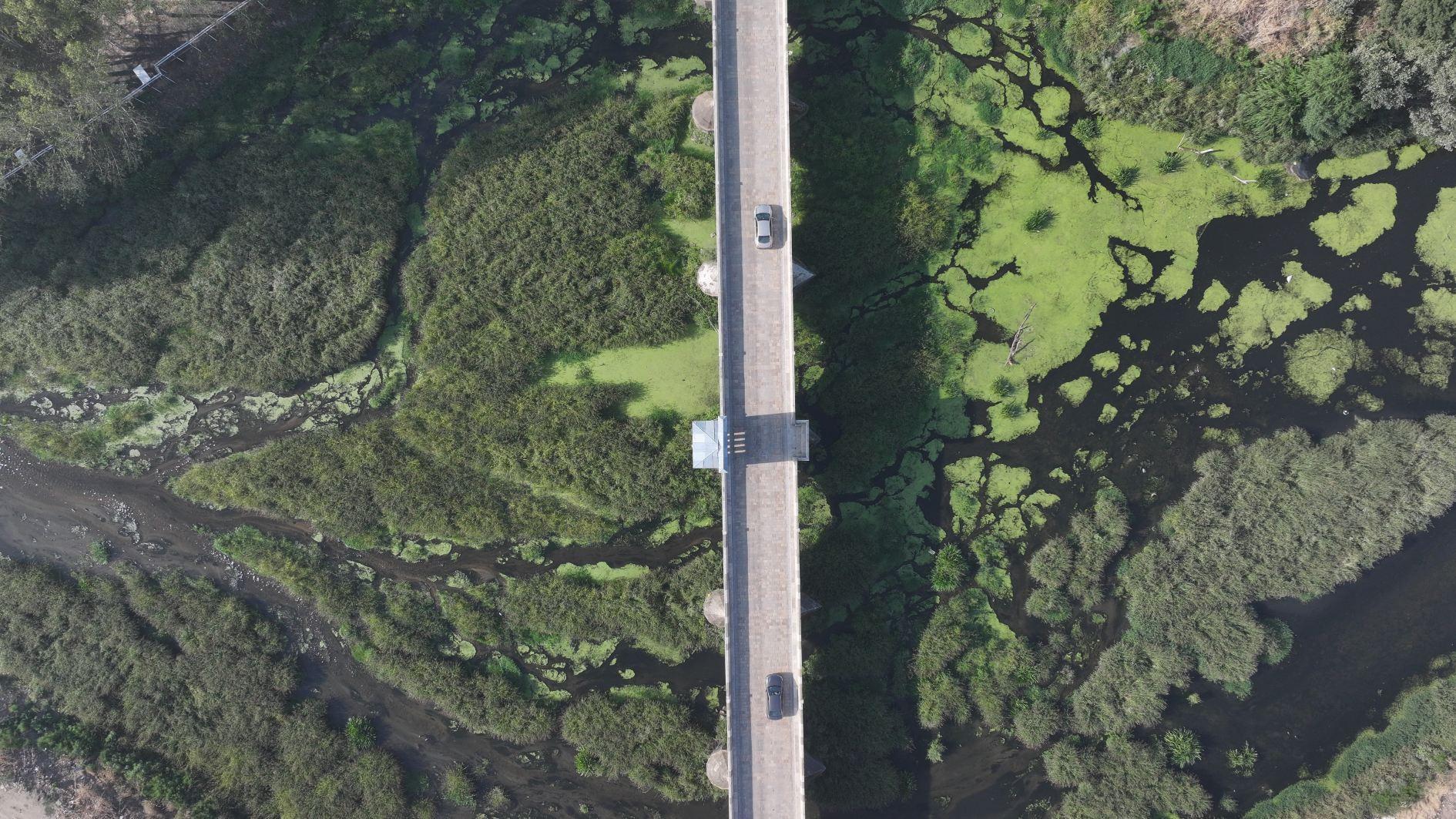
Severe drought and high temperatures in recent months have sharply reduced water levels in the Meriç and Tunca rivers in the northwestern province of Edirne.
Insufficient rainfall, increased evaporation due to extreme heat and heavy use of river water for irrigation caused parts of the rivers to run dry.
In some sections of the Tunca, the riverbed has split into sand islets, while stagnant stretches have become overgrown with reeds and dense vegetation.
According to the latest measurements by the State Hydraulic Works (DSI), the Tunca’s flow rate dropped to 2 cubic meters per second, while the Meriç measured 35 cubic meters per second.
Associate Professor Musa Uludağ, deputy director of a natural disaster research center at Trakya University, said the drought has taken a heavier toll on the rivers this year.
The hydrological data of Edirne show fluctuating patterns over decades, but dry periods are now becoming more frequent and severe, according to Uludağ.
He noted that Edirne’s annual average precipitation is 592 millimeters, but this can fall to 400 millimeters in some years or rise to 700 millimeters in others.
The expert also pointed to the global effects of climate change.
“Deforestation, over-urbanization and urban heat islands disrupt climate patterns. While we are already facing drought, agricultural demand and water consumption rise with population growth,” he said.
This puts pressure on both groundwater and surface water, Uludağ noted.
He underlined that 2025 has been “much drier and hotter” compared to previous years, with evaporation caused by heat, lack of rainfall and poor water management all worsening the situation.
"Our region is experiencing a prolonged dry period that could last another 5 to 6 years. It is too early to say how effective the next wet cycle will be on water resources.”
Due to worsening stiuation, agricultural yields are also being hit hard, Uludağ noted.
“Edirne has recorded above-normal temperatures this year, which increased evaporation while rainfall remained scarce,” he explained. “Irrigation needs added further strain. A significant portion of the water from the Meriç and Tunca is diverted into rice fields once the rivers enter Türkiye. In addition, Bulgaria has 24 dams on these rivers, storing water in winter and releasing it in summer.”
All these factors directly affect farming, according to Uludağ. The clearest example is in sunflower production, where development has stalled and yields have dropped sharply due to drought.
Edirne is among the provinces where the continental climate is most intensely felt, the expert added, noting that the city consistently records higher temperatures than surrounding provinces.